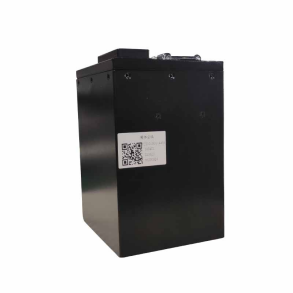The electric vehicle (EV) revolution is in full swing, with an increasing number of drivers opting for cleaner, more sustainable transportation options. Central to this transition is the remarkable rise of lithium-ion batteries. In this article, we explore the reasons behind the dominance of lithium-ion batteries in the EV market, shedding light on their unique advantages and the pivotal role they play in shaping the future of transportation.

Lithium-ion batteries have become synonymous with EVs due to their exceptional energy density. This crucial attribute allows them to store a significant amount of energy in a compact space, thereby extending the driving range of electric vehicles. As drivers seek increased mileage per charge, lithium-ion batteries deliver the necessary power while maintaining a relatively lightweight and space-efficient design.
Efficient charging is a cornerstone of EV adoption. Lithium-ion batteries shine in this aspect, offering rapid charging times compared to other battery technologies. This quick replenishment reduces the downtime associated with charging and contributes to the convenience of owning an electric vehicle. As charging infrastructure improves, the fast-charging capabilities of lithium-ion batteries become even more advantageous.
EV owners are concerned about the longevity of their batteries, given their significant investment. Lithium-ion batteries exhibit remarkable durability over time, with manufacturers continually improving their designs to enhance cycle life and overall longevity. This longevity not only reassures consumers but also contributes to the overall sustainability of EVs, as longer-lasting batteries reduce the frequency of replacements.

Lithium-ion batteries are heralded for their eco-friendly nature. By enabling the use of renewable energy sources and eliminating tailpipe emissions, EVs powered by these batteries contribute significantly to reducing air pollution and greenhouse gas emissions. This aligns perfectly with the global drive towards a greener and cleaner future.
As EV batteries age and reach the end of their usable life in vehicles, they can still find purpose in various second-life applications. These include energy storage for homes and businesses, where their capacity to store energy can help balance supply and demand from renewable sources. This not only extends the lifespan of the batteries but also contributes to a more sustainable energy ecosystem.

At the helm of the evolving electric vehicle (EV) landscape stands RAJA, a trailblazer in sustainable mobility. With an unyielding dedication to progress, RAJA has revolutionized the EV industry through its pioneering advancements in lithium-ion battery technology.
Our journey is one of transformation, as we drive the transition to sustainable mobility through innovation. By pushing the boundaries of lithium-ion battery technology, RAJA has redefined the very essence of electric vehicles, making them more efficient, accessible, and eco-friendly.
The heart of our mission lies in harnessing the potential of lithium-ion batteries. This technology empowers us to embrace cleaner transportation solutions that ripple positive effects throughout the environment and society. As the world grows increasingly conscious of its environmental impact, the prominence of lithium-ion batteries in the EV market symbolizes a shift towards a brighter, more sustainable future.
With their unmatched energy density, fast-charging capabilities, and impressive longevity, lithium-ion batteries are at the forefront of reshaping the automotive landscape. As RAJA leads this charge, we not only dominate the EV market but also pave the way for a world that is greener, more efficient, and remarkably advanced.
By continuing to use the site you agree to our privacy policy Terms and Conditions.